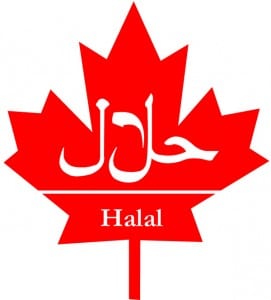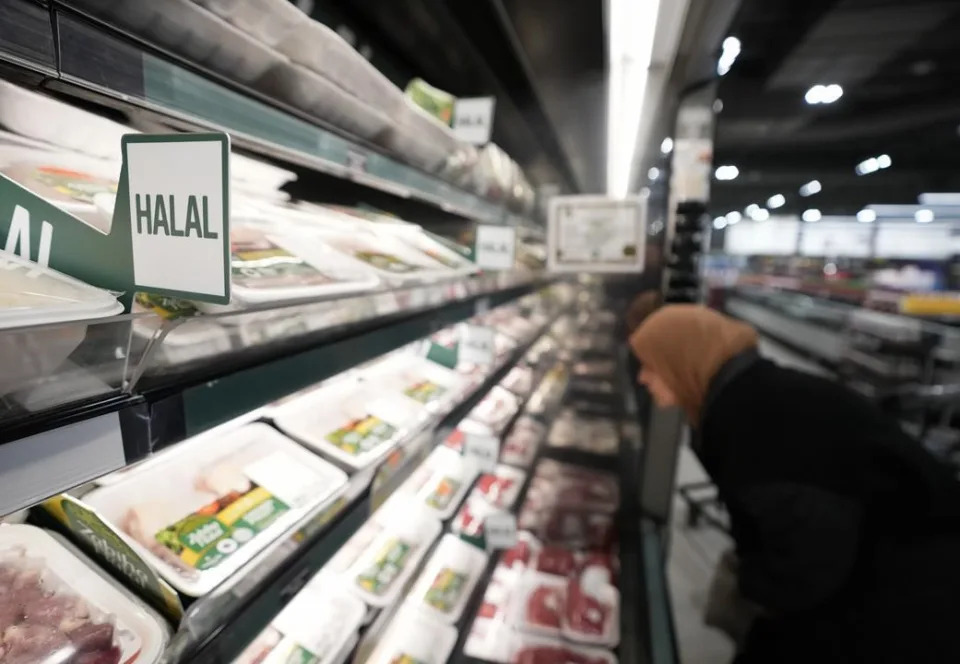By Ann Hui, The Globe and Mail
On a late October morning in 2010, a group of leaders from the Muslim community, food industry and government gathered at a Toronto airport hotel to discuss an issue of growing concern among them: halal fraud.
Many of them spoke of similar worries: that companies looking to capitalize on a growing Muslim population in Canada may be labelling food as “halal” even if it isn’t. Halal foods are those considered pure, or “lawful” for Muslims, and require adherence to strict rules of handling, slaughter and storage.
in Canada may be labelling food as “halal” even if it isn’t. Halal foods are those considered pure, or “lawful” for Muslims, and require adherence to strict rules of handling, slaughter and storage.
Out of that meeting, the Canadian Food Inspection Agency came up with a new rule, which comes into effect next month, that all foods labelled “halal” must also specify the name of the body certifying it. However, the CFIA stopped short of requiring oversight of the certifying bodies themselves – a move that some say leaves the industry open to continued mislabelling, and has sparked a debate over what role, if any, government should have in policing religion in food.
“Honestly, I don’t think it’s going to bring tremendous change,” Toronto-area Imam Omar Subedar said of the new rule. “I just think it’s going to open a new can of worms.”
With the certifying bodies unregulated, he said, “this is a good way for certain people to start an organization in their basement and say they’re an official representation of halal.”
Mr. Subedar was one of a group of Muslim leaders in the mid-2000s to conduct a study on Toronto-area food plants, and concluded that many did not meet the standards of halal. In some cases, he said, halal and non-halal foods were mixed together. In others, instead of blessing each animal as it was slaughtered, workers “were just chewing gum, or talking amongst each other.”
An archived version of the CFIA legislation explains the decision. “Regulating halal products through a standard is not feasible as there is currently no consensus among stakeholders on a common standard.”
Indeed, there are dozens of halal certifying bodies across Canada, with different processes and standards. Some provide daily inspections, others perform regular audits. Further complicating matters is that some groups also have different interpretations of the Koran, and what is and isn’t considered halal.
“I can see their apprehension in getting involved in what could be considered a religious affair,” Mr. Subedar said of the CFIA. “They really want to help, but the situation’s so complex.”
Mr. Subedar has since started his own certification body, the Halal Monitoring Authority, (HMA) and said that his group and some of others have made attempts to create a national standard, but have yet to reach an agreement.
One major point of contention is machine-slaughter, a common method used to kill chickens in poultry plants.
The HMA accepts only “hand,” or manual slaughter as halal. Mr. Subedar said that with a machine, which can slaughter more than 100 chickens a minute, there is no way to bless every animal individually. “We see this as a complete violation of what the Koran is telling us,” he said.
Meanwhile, another prominent Toronto-area certifying body, the Islamic Food and Nutrition Council of Canada (IFANCC), considers machine-slaughtered chickens acceptable. The company is the Canadian arm of a global organization that certifies products for companies such as Campbell and Cargill.
“As long as the basic criteria is fulfilled – the blessing is done, the blood is drained out, these are the two main requirements,” IFANCC director Haider Khattak said. “Even if you say ‘hand slaughter,’ it’s not really hand slaughter. You’re using a knife, which is a machine.”
Ultimately, both Mr. Khattak and Mr. Subedar said, the new rules leave the responsibility to the customer to understand the difference between the many groups – a significant responsibility, considering the Muslim belief that maintaining a halal diet helps maintain spiritual purity.
“In terms of dollars and cents, it may not be a major purchase,” Mr. Subedar said. “But when it comes to spirituality, it’s a huge purchase.”



